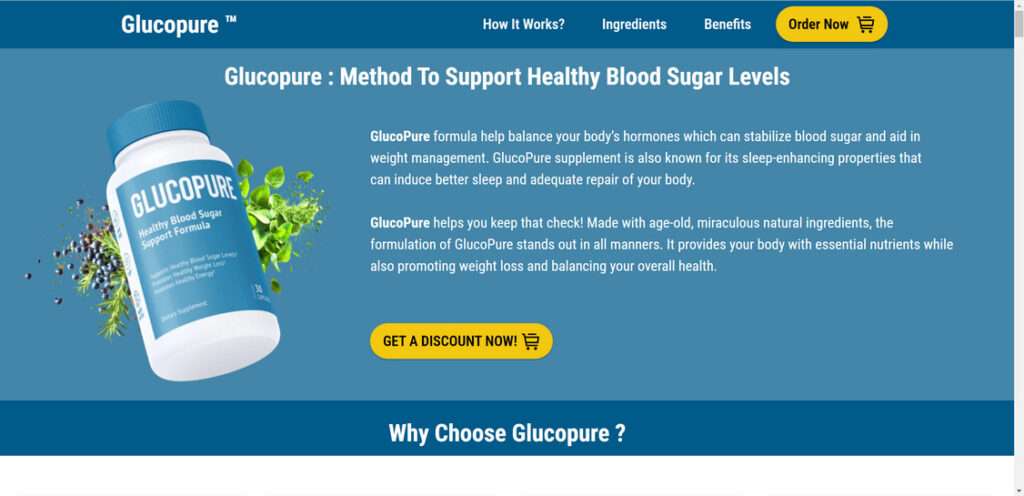GlucoPure liquid drops have been heavily marketed online lately as a “powerful natural solution” for managing blood sugar, especially for those with type 2 diabetes. But can this supplement really deliver on its lofty promises? Let’s take a deeper look at the facts.

Questionable Marketing Claims
Right away, there are some red flags with how GlucoPure is advertised. The company claims it’s “doctor formulated” and backed by research from prestigious institutions like Harvard.
However, these tactics are commonly used to try and make shady supplements appear more credible. There’s no evidence that any doctor or Harvard scientists were involved in developing GlucoPure.
Dubious or Non-Existent Expert Endorsements
The GlucoPure website also touts a supposed expert, Dr. John Halbert, recommending the product. But searches reveal no doctor by that name associated with any reputable diabetes or medical organization.
Fake expert endorsements are another giveaway something fishy is going on.
Dangerous Medical Advice
Perhaps most concerning is how GlucoPure promotes being able to stop taking prescription diabetes medications after using their supplement. This sort of medical advice coming from an unproven product could have serious health consequences.
No legitimate doctor would recommend discontinuing medications without medical supervision, especially for managing blood sugar.
No Real FDA Approval
While claimed to be “FDA approved,” dietary supplements like GlucoPure don’t go through an approval process for effectiveness. The FDA monitors safety, but there’s no evidence of FDA evaluating this specific product.
Suspicious Customer Reviews
GlucoPure displays thousands of 5-star reviews on its website. But on closer inspection, the language seems exaggerated and oddly similar between reviews, hinting they may be fake or manipulated to appear more convincing.
“Money Back Guarantee” May Not Be Reliable
The company offers a money back guarantee, but many customers of similar supplement products report problems actually getting refunded. The process is often deliberately difficult.
The Verdict: Likely Not Worth the Risk
Given the questionable marketing, non-existent expert endorsement, and lack of proven results, GlucoPure liquid drops appears highly suspicious. Those looking to manage blood sugar issues should consult with their doctor and stick to proven, FDA-approved treatments, not unverified supplements making bold claims. When it comes to health, it’s better to be safe than sorry.


![Remove 165velostroonkronter.site Pop-ups [Virus Removal Guide] 4 McAfee scam 4](https://malwaretips.com/blogs/wp-content/uploads/2023/08/McAfee-scam-4-290x290.jpg)

